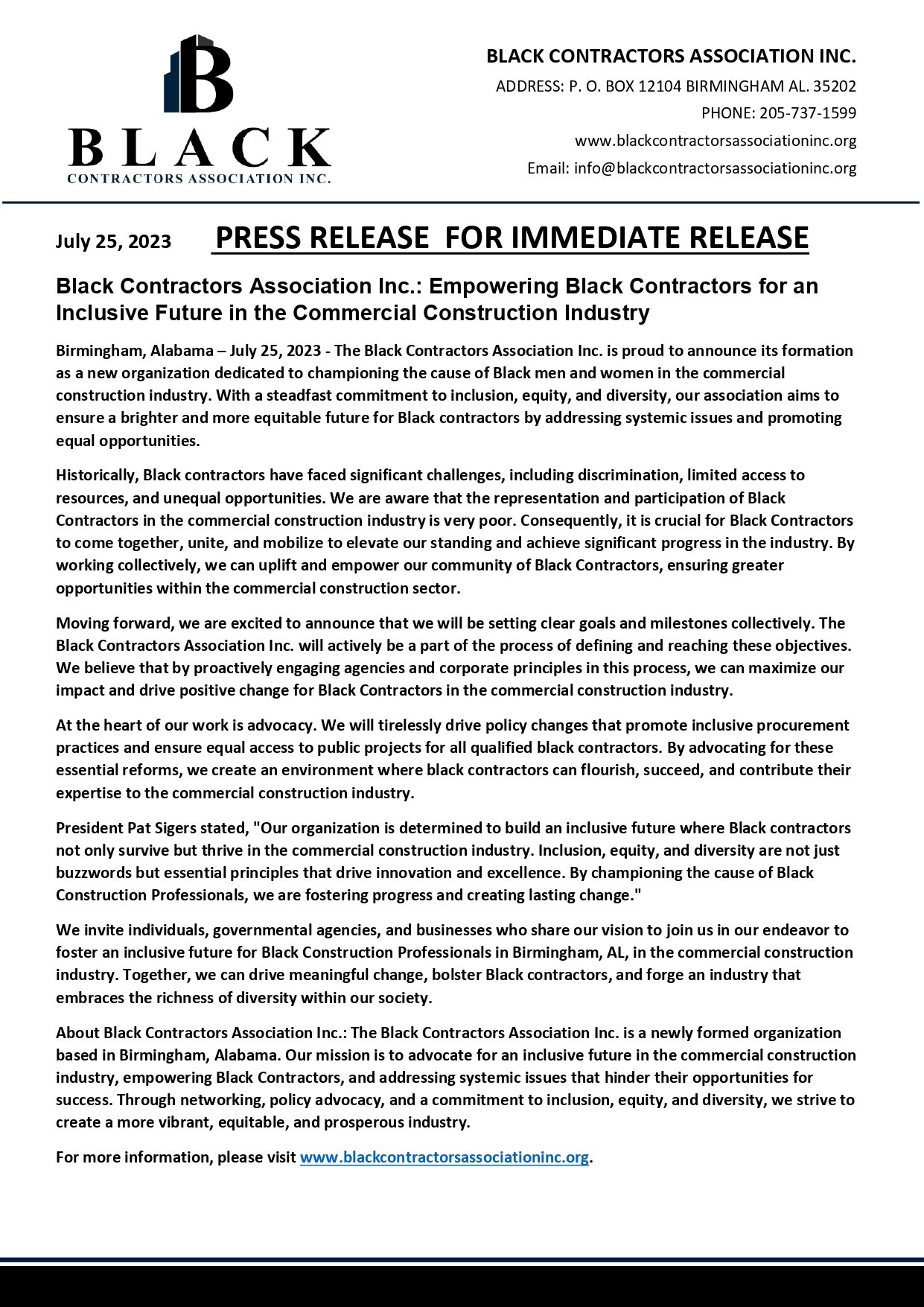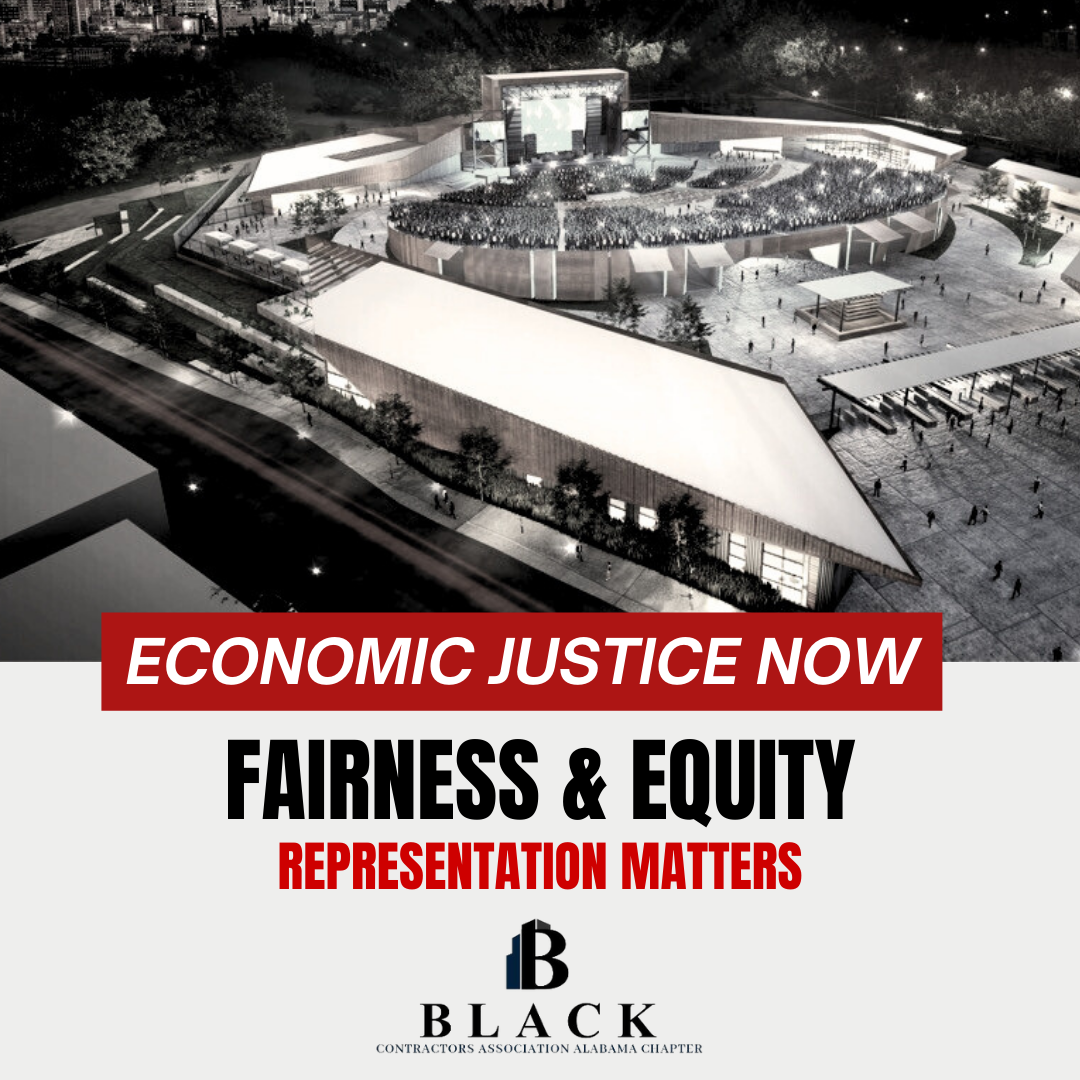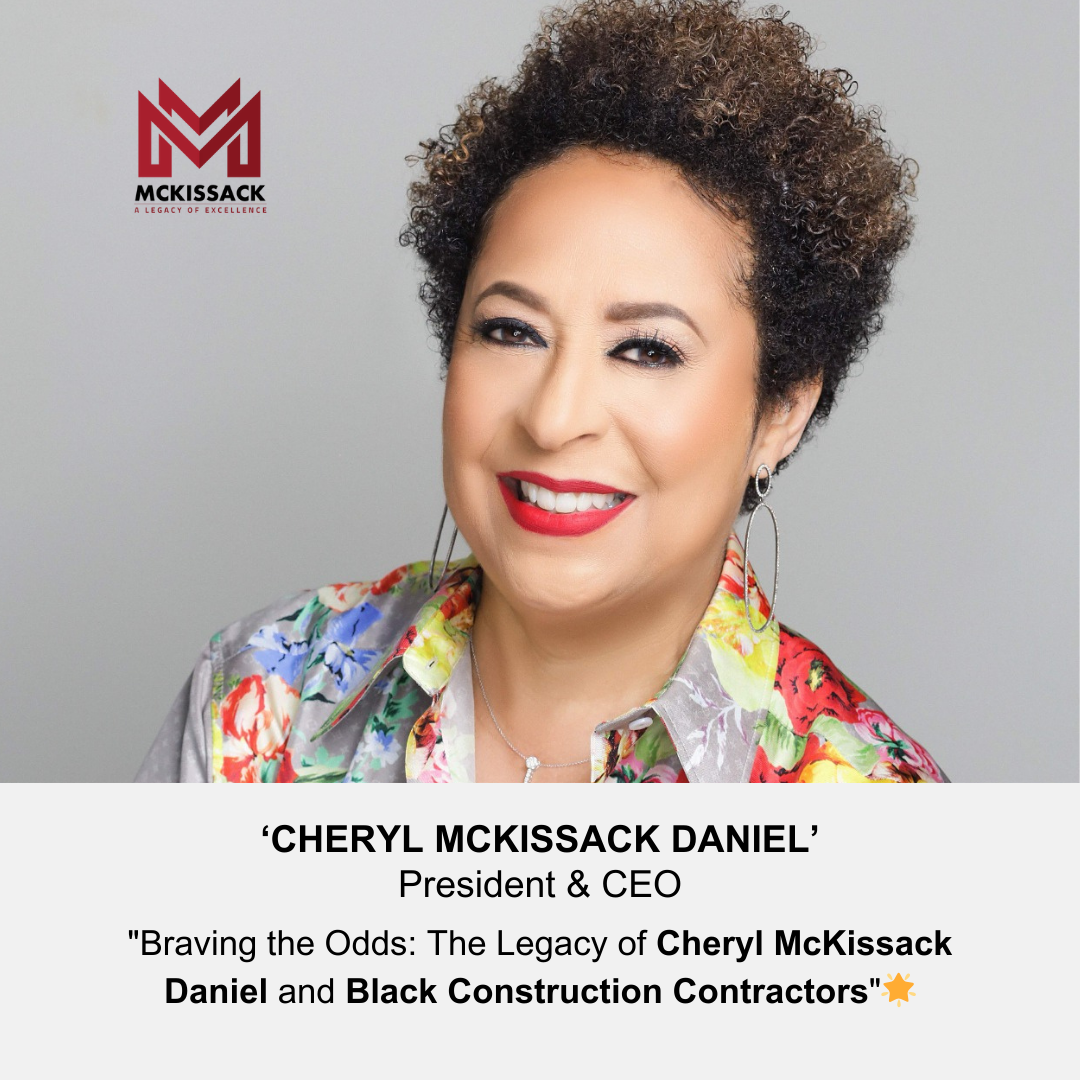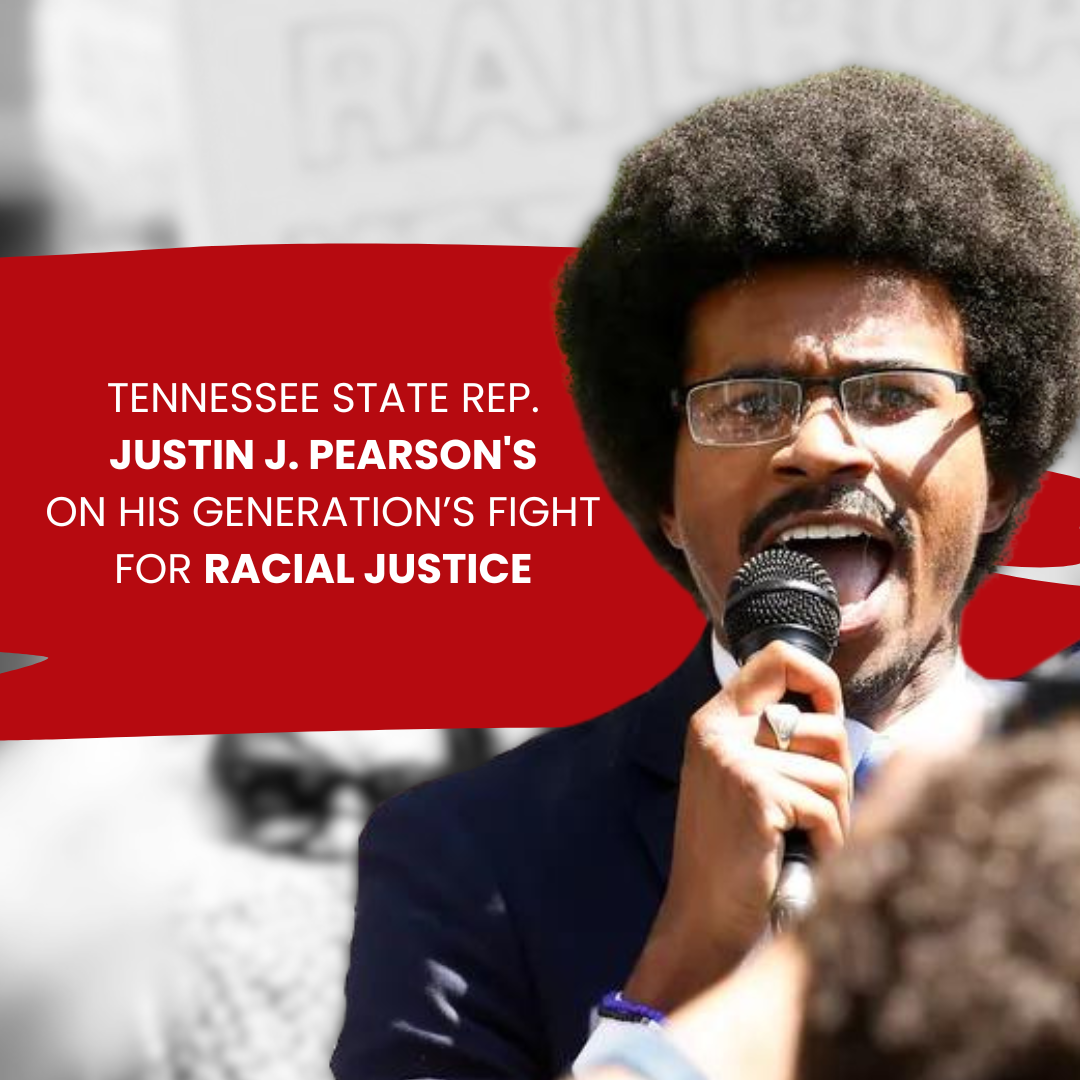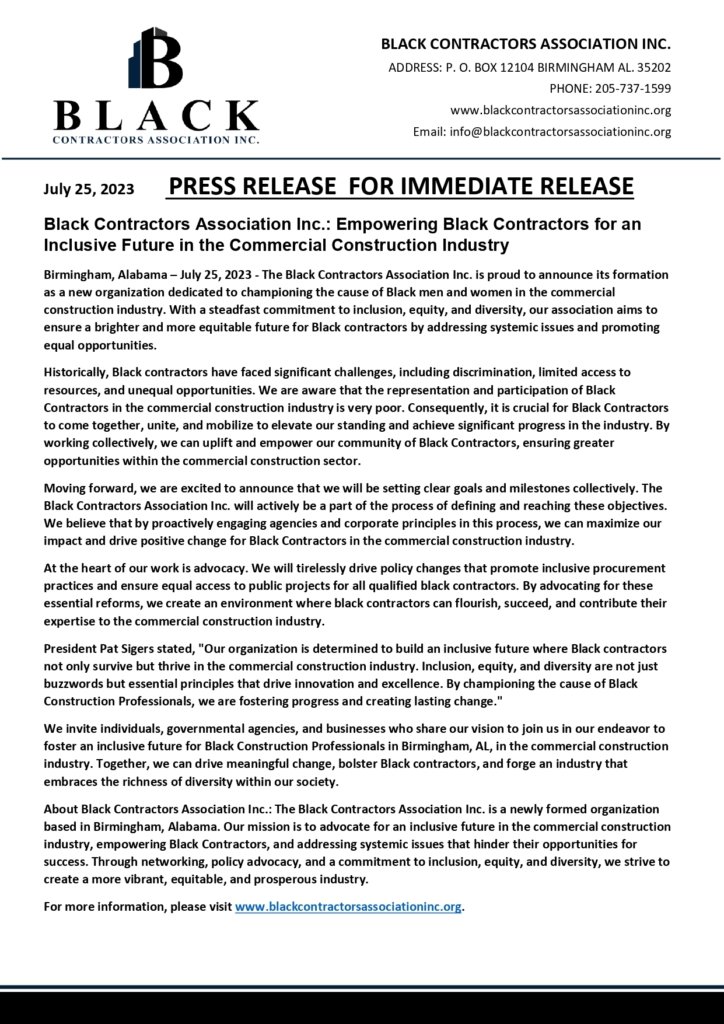
Bill Day
A Community In Crisis: Urgency And Hope In Birmingham

In the heart of Birmingham, Alabama, and across cities in the United States, communities are gripped by a crisis of violence and despair. Shocking statistics and heart-wrenching stories paint a grim picture: every week, another young life is brutally cut short by senseless violence. This cycle, fueled by diss music and street rivalries, exacts a devastating toll, leaving many young men and women without a future, hope, or escape—many not even reaching age 26.
The stark reality is that in some neighborhoods, the sound of gunfire is as common as the laughter of children. Front porches and street corners have turned into memorials, adorned with candles and pictures of lives lost too soon. Parents live in a constant state of anxiety, fearing that their child might be the next victim of this relentless violence.
Communities are trapped in a state of emergency, where fear and tension are the daily norms. Local businesses, once thriving, now struggle to keep their doors open as customers stay away, afraid of the escalating danger. Schools, instead of being safe havens for learning and growth, are often on lockdown, with students and teachers navigating the trauma of lost classmates and the omnipresent threat of violence.
Innocent bystanders, including children, are caught in the crossfire of gang-related shootings, their lives forever altered by stray bullets. The cycle of violence perpetuates itself as young people, feeling they have no other options, are drawn into gangs for a sense of belonging and protection. This crisis isn’t just claiming lives; it’s eroding the very fabric of these communities, breeding a pervasive sense of hopelessness and despair.
The dire situation calls for urgent and comprehensive intervention. It’s a state of emergency that demands immediate action from all sectors of society to stem the tide of violence and offer a beacon of hope to those trapped in its grip.
Personal Stories and Quotes:
- Detraio Deshawn Whorton, mother, Birmingham, AL: “After hearing ‘Your son didn’t make it,’ while you have been waiting on an update is a feeling I don’t wish on any mother. I didn’t know what to do. I had never planned a funeral before, let alone one for my son.”
- Shelby Brashier’s mother, Chandler, AZ: “My daughter, Shelby, was taken from me on June 25, 2024, at the tender age of . She was a bright light in my life, and her smile could light up a room. I’m still trying to come to terms with the loss, but I know I must keep fighting for justice and peace in our community, so no other mother has to go through this pain.”
- Ram’s mother, Buffalo, NY: “I lost my son, Ram, on June 21, 2024. He was a kind soul, and his laughter could fill a room. I remember the day like it was yesterday. I got the call, and my world came crashing down. I screamed, I cried, I begged God to take me instead. But it was too late. My baby was gone.”
The Urgency of Now: Facing the Statistics
The urgency of this mission cannot be overstated. Birmingham finds itself tragically ranked among the top ten cities nationwide for all the wrong reasons—statistics that underscore the gravity of the situation. Each day without action risks more young lives. The cycle of violence demands immediate, concerted efforts from every sector of the community. BCAAC grasps this urgency and is taking bold strides to combat it.
We have reached out to some of the nation’s leaders in helping to bring the much-needed programs and services to the communities most affected by the violence and unrest they experience every day. We will be working and collaborating with these organizations to break and impact our citizens positively. Much of the work involves directly engaging young men where they are, listening to their stories, and understanding their challenges firsthand. BCAAC meets them with open ears and open hearts, aiming to build trust and provide the support they need to thrive. We are committed to doing our part to build better communities.
Another perspective often overlooked in discussions about urban violence is the impact on mental health. The constant exposure to violence has severe psychological consequences for residents, particularly young people. The trauma of witnessing or being a victim of violence leads to a range of mental health issues, including PTSD, anxiety, and depression. These mental health challenges, if unaddressed, can perpetuate the cycle of violence, as individuals may turn to substance abuse or criminal behavior as coping mechanisms. Community mental health services are critically underfunded, leaving many without access to the care they desperately need. BCAAC recognizes this gap and advocates for integrating mental health support into their outreach and development programs. By addressing both the immediate needs and the underlying causes of violence, they aim to foster a holistic approach to healing and rebuilding communities.
Historical Context:
This crisis is not new. Decades of systemic issues such as economic disenfranchisement, redlining, and the war on drugs have all contributed to the current situation. Understanding these roots is crucial for developing effective, long-term solutions.
Education, mentorship, and industry insight lie at the heart of BCAAC’s strategy moving forward. Collaborating with local schools, community centers, and allied organizations, we aim to meet young people where they are. Through forthcoming workshops, apprenticeships, and on-the-job training, BCAAC seeks to empower the next generation with the tools they need to flourish.
Looking Ahead: Tackling the Crisis Together
As we conclude this first part of our four-part series, we look ahead to the next critical steps in tackling the violence plaguing our communities. In the upcoming segment, we will delve deeper into the challenges and solutions with insights from experienced organizations that are shaping policy and developing impactful programs, and offering unique perspectives on the work that needs to be done to bring about real change. Join us as we discuss their tireless efforts and the crucial steps required to build safer, stronger, and more hopeful communities. Stay tuned for a compelling conversation that promises to shed light on the path forward.
A Tribute To Willie Mays: The Greatest Baseball Player Of All Time
Willie Mays, the legendary baseball player, left an indelible mark on the sport. His impressive career spanned over two decades, earning him the reputation as the greatest baseball player of all time. Mays’ journey began with the Birmingham Black Barons, and his talent and dedication propelled him to become an iconic figure in baseball history.
Early Life and Career
Born on May 6, 1931, in Westfield, Alabama, Mays grew up in a family of athletes. He started playing baseball at a young age and joined the Birmingham Black Barons at just 15 years old. His talent and prowess quickly earned him recognition, and he was signed by the New York Giants in 1951.
Achievements and Accolades
Mays’ impressive career was filled with numerous achievements and accolades. He won two MVP awards, appeared in 24 All-Star Games, and won 12 Gold Glove Awards. He also hit 660 home runs, ranking him fourth on the all-time list. Mays’ incredible defensive skills and powerful hitting earned him the nickname “The Say Hey Kid.”
Quotes and Legacy
Mays was not only an exceptional player but also an inspiration off the field. His quotes reflect his humility, dedication, and passion for the game. “Every time I look at my pocketbook, I think of Jackie Robinson,” he said, reflecting on the impact Robinson had on his career. “I’m not a superstar. I’m just a baseball player,” he humbly stated. “The greatest thrill in the world is to make a great play and have the crowd go wild,” he exclaimed.
Tying it all Together
Willie Mays’ legacy extends beyond his impressive statistics and awards. He played for the Birmingham Black Barons, a team that holds a special place in the history of baseball. His journey from playing with grown men at 15 years old to becoming the greatest baseball player of all time is a testament to his hard work and dedication.
A Lasting Impact
In 2014, Syms Contractors, a member company of BCAAC, had the privilege of renovating the restrooms at Willie Mays Park in Fairfield, AL. We were driven to be a part of this project because we wanted to contribute to the legacy of a baseball legend. This project remains one of our most significant achievements, and we’re proud to have played a role in preserving the history and lore of Willie Mays.
“Our team was honored to work on this project,” said Jarrod Sims, President of Syms Contractors. “We knew that we were not only renovating a park, but also paying tribute to a legend who has inspired generations of baseball players and fans.”
Honoring a Legend
We share in the sorrow of the passing of Willie Mays, a trailblazer on and off the field. Our member company Syms Contractors had the honor of working on the Willie Mays Park in Fairfield, AL, and we celebrate his legacy and the impact he had on our community. Our condolences go out to the Mays family during this difficult time.
“Willie Mays was more than just a baseball player – he was a true competitor, a standard-bearer in the sport, and an inspiration on and off the field,” said Sims. “His impact will continue to be felt for generations to come, and we’re proud to have played a small part in preserving his legacy.”
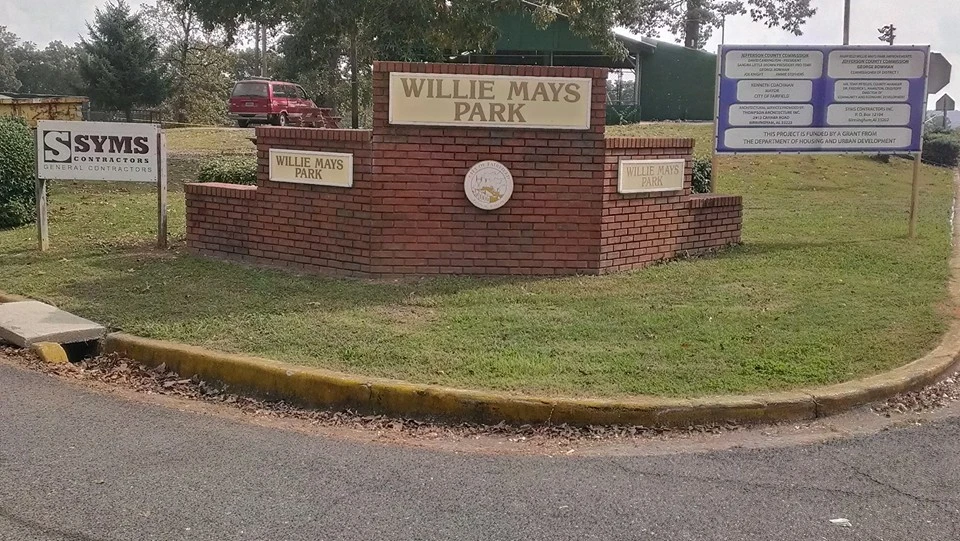
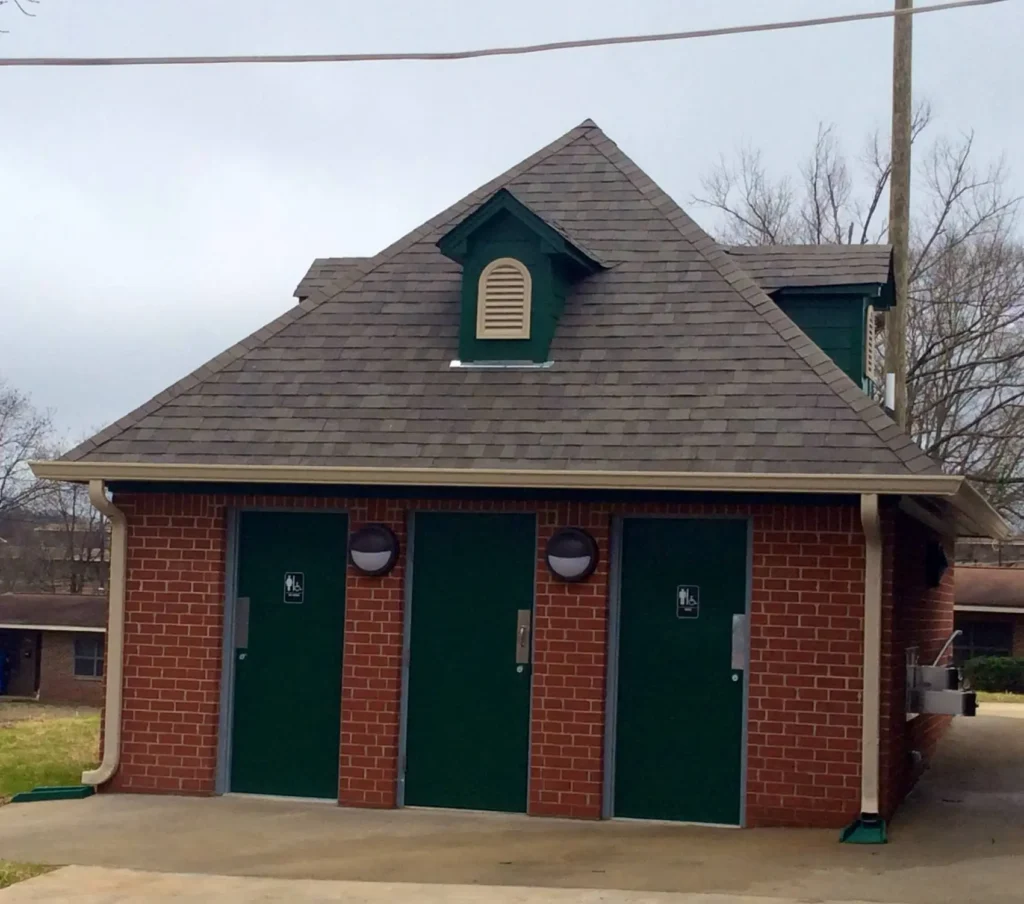
Exclusive Interview With Jarrod Sims, President Of The Black Contractors Association Of Alabama (BCA-AC)


Exclusive Interview with Jarrod Sims, President of the Black Contractors Association of Alabama (BCA-AC)
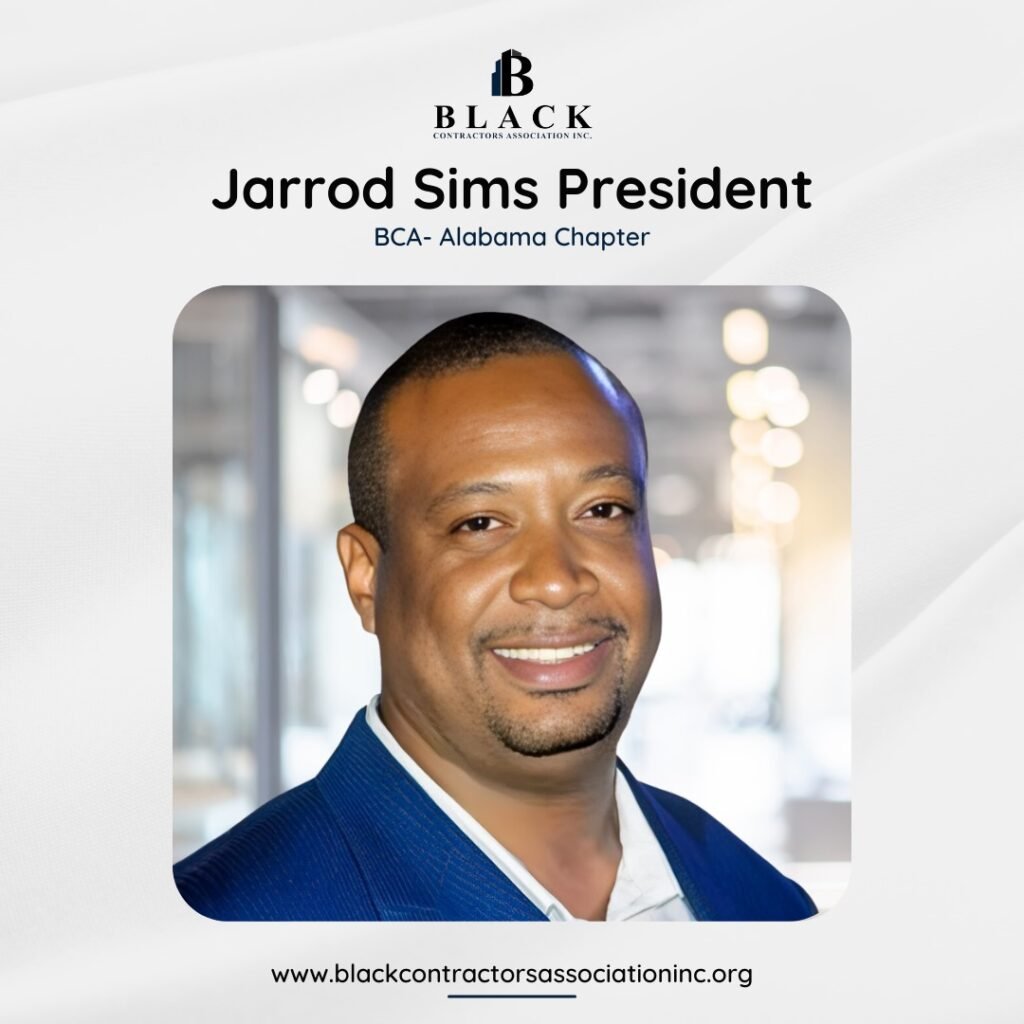
In a move that could have far-reaching implications for the construction industry in Birmingham and Jefferson County, the Black Contractors Association of Alabama (BCA-AC) has filed a lawsuit against the Birmingham Jefferson Civic Center Authority (BJCC) claiming it did not follow inclusion policies established by the city and county when selecting the contractor for the projects. We sat down with Jarrod Sims, President of the BCA-AC, to discuss the issue, the lawsuit, and the fight for fairness and equity.
Bill Day : So, Jarrod, can you tell us a bit about the issue at hand? What’s been going on?
Jarrod Sims : “First thing, thank you, Bill. I appreciate the opportunity to get this issue out to the people of this community. As we all know, representation matters, and it’s crucial that our community’s majority and diverse voices are reflected in the publicly funded projects that shape our city’s future.”
Bill Day : “Can you explain how the BJCC’s actions have affected the community and the construction industry in particular?”
Jarrod Sims : “Absolutely, Bill. The BJCC’s failure to fully follow the inclusion policies set by the City of Birmingham and their Participation Framework Plan for MBE DBE WBE HUB business has resulted once again in not meeting the 30% target establish spelled out in the Framework Plan for all BJCC projects, perpetuating a cycle of exclusion and limiting opportunities for (HUB’s) Historically Underutilized Business This not only harms the businesses but also deprives the community of the economic benefits and jobs that come with inclusive development. We believe that everyone should have an equal chance to participate in the growth and prosperity of our city.”
Bill Day : And what’s the current status of the lawsuit?
Jarrod Sims : We’re headed to court on Wednesday June 5th, at 1:30pm at the Jefferson County CourtHouse in Judge DONALD E. BLANKENSHIP Courtroom. We are urging our supporters and anyone who is for fair play to join us as we stand up for economic justice.
Bill Day : How has the BJCC responded to the BCA-AC’s demands for fairness and equity?
Jarrod Sims : Unfortunately they have not responded to our concerns. Bill I was told this was going to go this way, I held out hope for the Star Amphitheater project being the one that would lead the way for better opportunities for HUB’s here in the City of Birmingham.
Bill Day: Can you expand on that a little more.
Jarrod Sims : Sure, to get this issue of true inclusion and representation on publicly funded projects here in Birmingham , we must now have a leader, a champion, or some agency or entity or person with the will to move this issue behind us as a City. First you have to see the citizens of Birmingham as true equals in this process, not as an afterthought. Listen : we can get this done, we must as a collective that prioritizes inclusion for HUB’s in public spending. All of the stakeholders, elected officials, must have a commitment and willingness to get this done once and for all. “Only by accepting the truth and working together can we finally close this sad chapter and build a brighter future for all in Birmingham’s publicly funded commercial construction projects.”
Bill Day : “Thank you, Jarrod, for sharing your insights and perspectives on this critical issue. It’s clear that there’s much work to be done to achieve fairness and equity in publicly funded projects in Birmingham. We urge our readers to join the BCA-AC in their fight for inclusion and representation. Together, we can create a more just and equitable community for all.”
Jarrod Sims : Thank You .
Community Cuts – Barbershop Talk

Join us for Community Cuts – Barbershop Talk, where young men can learn from experienced voices and connect with their community. All men are welcome to share their wisdom and support for the next generation of leaders. The black barbershop has long been a sacred space for more than just a haircut – it’s a hub for community building, storytelling, and knowledge sharing. For generations, barbershops have served as informal gathering places where men could openly discuss current events, share life experiences, and receive guidance from elders. This setting is especially important today, as we face ongoing social justice challenges and seek to empower our communities. By reviving this tradition, we aim to create a safe space for intergenerational dialogue, mentorship, and collective growth.
#CommunityCuts #BCAAC #BCN #BuildingBetterCommunities #NBCA
From Vision To Impact: The NBCA’s Role In Transforming The Construction Industry

We’re thrilled to announce that the Black Contractors Association – Alabama Chapter (BCA-AC) has officially joined the National Association of Black Contractors, marking a significant stride in empowering black contractors nationwide. Led by Jarrod Sims, our President, BCA-AC proudly aligns with this esteemed national movement, dedicated to fostering inclusion, equity, and diversity within the commercial construction industry.
In a recent press release, we reiterated our unwavering dedication to championing the cause of black men and women in the construction sector. At the core of our mission is the resolve to tackle systemic issues and ensure a brighter, fairer future for black construction professionals.
As part of the National Association of Black Contractors, BCA-AC stands shoulder to shoulder with chapters across the nation, each playing a pivotal role in advancing our shared mission. From coast to coast, our chapters are actively driving policy changes, advocating for inclusive procurement practices, and cultivating environments where black contractors can thrive.
Our affiliation with the national organization underscores our commitment to collaboration and learning on a broader scale. “We recognize the power of unity in our efforts to not only help black contractors survive but thrive in the commercial construction industry, “The National Black Contractors Association Headquarters, work to secure a 10,000 square foot Apprenticeship Training Center in San Diego, that serves as a beacon to show what can and must be done to secure our future in the commercial construction sector. Count this as a testament to our commitment to this most important work,” says President Sims. “This facility addresses the training needs of inner-city youth and also serves as the NBCA Corporate office, based in Southern California.”
Guiding our national endeavors is Abdur-Rahim Hameed, the esteemed National President/CEO, whose three decades of tireless advocacy have supported the growth and success of tradesmen, tradeswomen, HUBs, MBEs, and DBEs across the nation. “The future is indeed bright for our emerging contracting community,” shares President Hameed. With a history spanning over 37 years of fostering strong relationships and partnerships with major contractors, governmental agencies, and politicians, the NBCA stands ready for continued growth and influence. Its trajectory promises to bring about meaningful changes in the commercial construction industry.
BCA-AC remains steadfast in our dedication to this vital work. Join us as we continue to build an inclusive future where black contractors can flourish and contribute their expertise to the commercial construction industry.
For more information about our initiatives and how to get involved, visit
Breaking Barriers: Black Contractors Gear Up For Birmingham’s Star Amphitheater Construction Amid $1B Boom

In the heart of Birmingham, Alabama, a massive building project is underway, sparking excitement and anticipation throughout the state. The Star Amphitheater in Birmingham project has become a focal point of interest, not only for its scale and significance but also for the promise it holds for fostering diversity and inclusion in the construction industry.
Jarrod Sims, President of the Black Contractors Association Alabama Chapter (BCA-AC), shares the enthusiasm surrounding the project. “We are very excited to be a part of this monumental project,” Sims expresses, reflecting the sentiments echoed by many within the BCA-AC. “We have received calls from all over the state about the Amphitheater project,” he adds, emphasizing the widespread attention and anticipation it has garnered.
However, amidst the excitement, there is a notable point of interest that cannot be overlooked. “I too am eager to see this project happen,” acknowledges Sims, “but we have seen many high-profile publicly funded projects that did not have much in the way of Black Construction Professional participation on them.”
“This lack of participation raises concerns, particularly in light of Birmingham’s demographic makeup, where approximately 69% of residents are African American. It’s essential to recognize that Black residents in Birmingham are taxpayers and thus have rightful expectations of being included in the construction process. The absence of Black contractors and professionals not only undermines the principles of diversity and inclusion but also perpetuates disparities within the construction industry. Representation matters, especially given that all citizens, regardless of race or background, contribute to these projects through their taxes.”
The Birmingham Star Amphitheater project represents an opportunity to address these disparities and break down barriers that have hindered the full participation of Black contractors and professionals. With an estimated $1 billion construction boom taking place in Birmingham, the city has adopted a resolution for the Amphitheater project requiring all publicly funded projects to meet certain diversity and inclusion targets for subcontractors and hiring. This new ordinance sets the threshold at 30%, which is an encouraging step forward.
The BCA-AC is committed to advocating for the inclusion of Black contractors and professionals in the Star Amphitheater project and similar endeavours. “We see this as an opportunity to make a meaningful impact and create pathways for Black entrepreneurs and professionals to thrive in the construction industry,” asserts Sims. The new ordinance holds great potential, and we are confident that we can meet and even surpass the 30% threshold with the support of organizations like the BCA-AC and BCIA, established to assist MBE/DBE/HUB companies.
Through outreach efforts, partnerships, and advocacy initiatives, the BCA-AC aims to promote awareness and facilitate opportunities for Black contractors to participate meaningfully in the project. We have made a clear declaration that meeting the 30% threshold will not be an issue. We are engaging with stakeholders, advocating for equitable procurement practices, and providing support and resources to Black-owned businesses, ensuring that the Birmingham Star Amphitheater project reflects the diversity and talent of the local community.
Furthermore, the involvement of Black contractors and professionals brings unique perspectives, skills, and experiences to the table, enriching the project and contributing to its success. By breaking down barriers and fostering inclusivity, the Birmingham Star Amphitheater project has the potential to serve as a model for future developments, inspiring positive change and advancement within the construction industry.
As the project progresses, the BCA-AC remains steadfast in its commitment to advocating for the interests of Black contractors and professionals. “We will continue to actively engage with stakeholders, monitor progress, and ensure that the principles of diversity and inclusion are upheld throughout the construction process,” affirms Sims.
In conclusion, the Birmingham Star Amphitheater project represents more than just a construction endeavour; it symbolizes an opportunity to break barriers, promote diversity, and foster inclusive growth within the construction industry. With the support and involvement of Black contractors and professionals, this project has the potential to leave a lasting legacy of empowerment and opportunity for generations to come, because representation matters.
Celebrating Trailblazers: Black Construction Pioneers Transforming The Industry
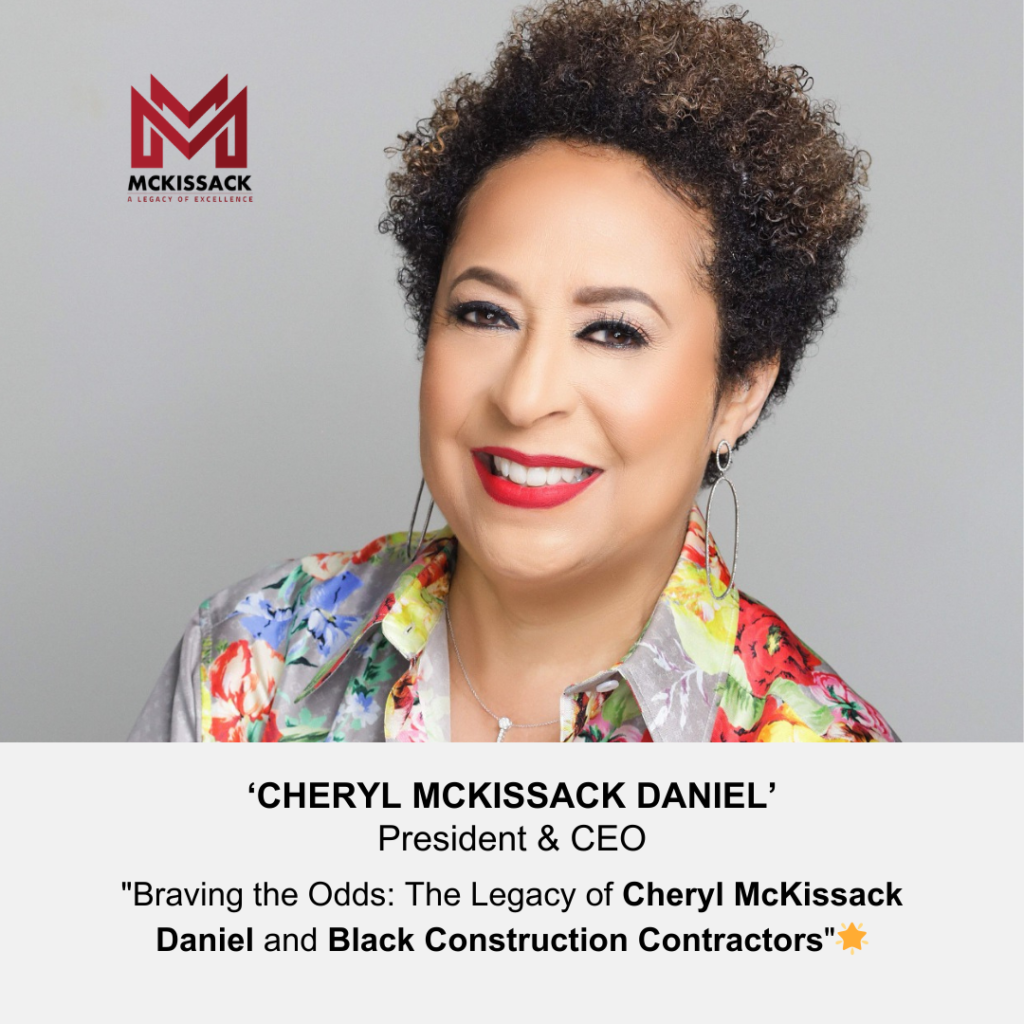
In a world where systemic racism has long plagued the opportunities available to Black professionals, the construction industry stands as a testament to the resilience and determination of those who have defied the odds. The Black Contractors Association of Alabama (BCA-AC) is proud to celebrate the cultural contributions and achievements of Black construction contractors who have shattered barriers and left an indelible mark on the commercial construction sector.
At the forefront of this inspirational journey stands McKissack & McKissack, the oldest African-American-owned and female-run construction company in the nation. Led by the visionary Cheryl McKissack Daniel, this pioneering firm has carried on a legacy of excellence that dates back to its founding by brothers Moses and Calvin McKissack in 1905.
Despite facing systemic racism, discrimination, and the cutthroat competition of a male-dominated industry, McKissack & McKissack has consistently proven its mettle. From the New Terminal One at JFK International Airport to the iconic World Trade Center in New York City, their commitment to quality and innovation has set them apart, leaving a lasting impact on the built environment.
Cheryl McKissack Daniel’s leadership and vision have been instrumental in the company’s continued success, as she has overseen transformative projects in downtown Brooklyn and spearheaded the revitalization of Long Island’s railroad hub. Her achievements as a Black woman in a predominantly male field are a testament to the power of perseverance and a source of inspiration for women of color aspiring to make their mark in the construction industry.
As the BCA-AC celebrates the cultural contributions of Black construction contractors, we recognize the importance of uplifting and honoring these trailblazers. Their stories serve as beacons of hope, inspiring future generations to pursue their dreams and become a part of this influential sector.
The journey towards a more inclusive and diverse construction industry is ongoing, and the BCA-AC remains committed to showcasing the success stories of Black-owned firms and the impact they have had on shaping our cities and communities. By celebrating these pioneers, we not only honor their resilience and innovation but also pave the way for more African Americans to join the ranks and contribute to the built environment of our nation.
As we move forward, the BCA-AC invites you to join us in celebrating the achievements of Black construction contractors like McKissack & McKissack. Together, we can foster an environment of inclusivity, where merit and talent are celebrated, and the contributions of all are recognized and valued.
Title: Celebrating Trailblazers: Black Construction Pioneers Transforming the Industry
In a world where systemic racism has long plagued the opportunities available to Black professionals, the construction industry stands as a testament to the resilience and determination of those who have defied the odds. The Black Contractors Association of Alabama (BCA-AC) is proud to celebrate the cultural contributions and achievements of Black construction contractors who have shattered barriers and left an indelible mark on the commercial construction sector.
At the forefront of this inspirational journey stands McKissack & McKissack, the oldest African-American-owned and female-run construction company in the nation. Led by the visionary Cheryl McKissack Daniel, this pioneering firm has carried on a legacy of excellence that dates back to its founding by brothers Moses and Calvin McKissack in 1905.
Despite facing systemic racism, discrimination, and the cutthroat competition of a male-dominated industry, McKissack & McKissack has consistently proven its mettle. From the New Terminal One at JFK International Airport to the iconic World Trade Center in New York City, their commitment to quality and innovation has set them apart, leaving a lasting impact on the built environment.
Cheryl McKissack Daniel’s leadership and vision have been instrumental in the company’s continued success, as she has overseen transformative projects in downtown Brooklyn and spearheaded the revitalization of Long Island’s railroad hub. Her achievements as a Black woman in a predominantly male field are a testament to the power of perseverance and a source of inspiration for women of color aspiring to make their mark in the construction industry.
As the BCA-AC celebrates the cultural contributions of Black construction contractors, we recognize the importance of uplifting and honoring these trailblazers. Their stories serve as beacons of hope, inspiring future generations to pursue their dreams and become a part of this influential sector.
The journey towards a more inclusive and diverse construction industry is ongoing, and the BCA-AC remains committed to showcasing the success stories of Black-owned firms and the impact they have had on shaping our cities and communities. By celebrating these pioneers, we not only honor their resilience and innovation but also pave the way for more African Americans to join the ranks and contribute to the built environment of our nation.
As we move forward, the BCA-AC invites you to join us in celebrating the achievements of Black construction contractors like McKissack & McKissack. Together, we can foster an environment of inclusivity, where merit and talent are celebrated, and the contributions of all are recognized and valued.
Meet Tennessee Rep. Justin Pearson
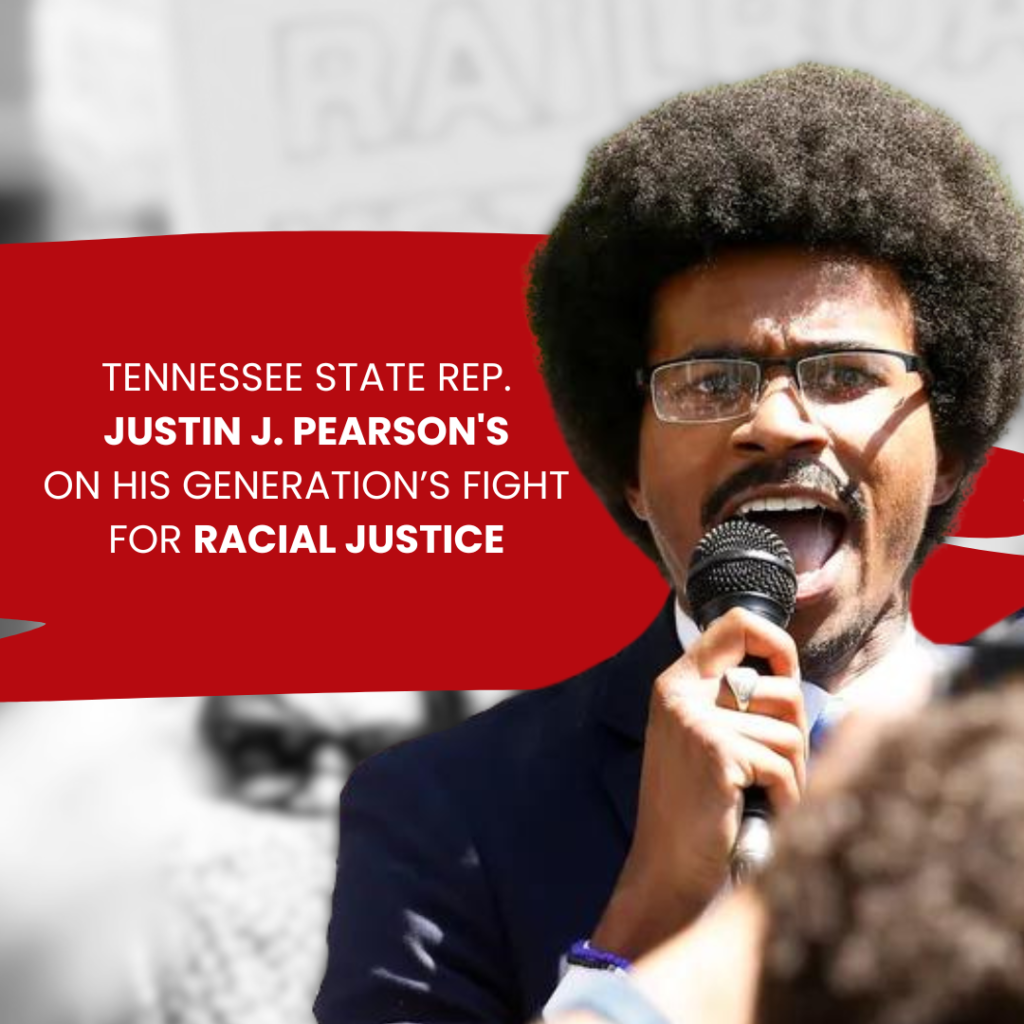
“Meet Tennessee Rep. Justin Pearson, this generation’s newest leader whose courageous protest echoes the bold actions of civil rights icons who fought against racism in the 1960s. Before assuming his role as a state representative in Tennessee, Pearson was already a tireless advocate for racial justice, mirroring the dedication of icons like Dr. King, H. Rap Brown, and Fred Hampton. His commitment to racial equality extends beyond his recent election; it’s a lifelong fight for justice that’s deeply ingrained in his work.
Today, as a state representative, Pearson continues to champion the cause of diversity, equity, and inclusion (DEI). He consistently stands against the rise of anti-DEI laws across the nation, recognizing their detrimental impact on underrepresented communities. Pearson’s efforts align with his firm belief that these misguided laws threaten to dismantle vital initiatives, perpetuating discrimination and exclusion. The movement to stifle DEI is mean-spirited and unfortunately speaks to who we are as a society. What happens to the programs that have helped develop people, businesses, and communities when they disappear? Is America turning its back on those striving to secure a foothold in their piece of the American dream? There are no neutral positions in this matter; remaining silent is not an option. “We urge you to lend your voice and stand with us on this crucial issue of our time—combating modern attacks on equality. Together, let’s champion equal rights and advocate for diversity, equity, and inclusion (DEI) now!
What happens to the programs that have helped develop people, businesses, and communities when they disappear? Is America turning its back on those striving to secure a foothold in their piece of the American dream? These are critical questions that demand thoughtful consideration and action from all of us.
Let’s work together to create a more equitable and just society for all. Support our mission to fight against any efforts that hinder a productive community. Black Contractors Association-Alabama Chapter.
- 1
- 2

